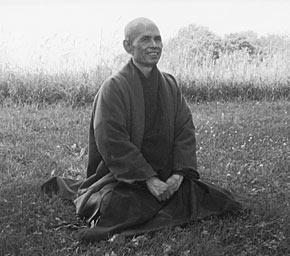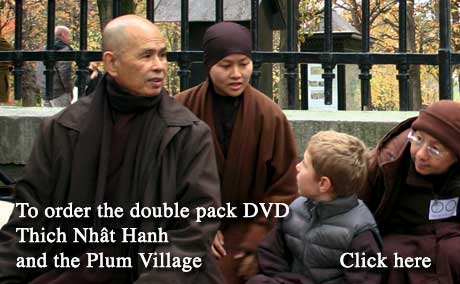The Power of Silence
By Paul Dekar
 One Saturday in a mid-sized, mid-South city in the heartland of the United States, some individuals walked in silence. Lunch followed, in silence.
One Saturday in a mid-sized, mid-South city in the heartland of the United States, some individuals walked in silence. Lunch followed, in silence.
In any conventional reading, this is not news. But it was an event. The event is still unfolding. Organizers called the weekend PeaceWalk 2002.
Although not so planned, PeaceWalk 2002 proved to be one occurrence in an uprising against the effort of allegedly powerful institutions – the Presidency of the United States, the market and the media – to impose a tyranny of silence on people. The rhetoric of a “war on terror” had just widened to include a war against Iraq. And in increasing numbers, people were saying “No!” “Not in my name!” What distinguished PeaceWalk 2002 from all the other peace gatherings held worldwide around that time was that this one demonstrated the power of silence.
September 28, 2002 in Memphis, Tennessee, Thich Nhat Hanh led a mindful walk, ate a mindful lunch, and gave a dharma talk.
The timing of PeaceWalk 2002 proved fortuitous: war was on everyone’s mind. The setting was also noteworthy.
Memphis was the site of the King assassination. Earlier, it was the beginning of the Trail of Tears: century and a half ago, Cherokee, Choctaw, and Chickasaw Indians crossed the Mississippi from Memphis to an imposed exile. And for decades, European-Americans maintained power in Memphis through the racial intimidation and demagoguery of the political machine headed by Ed “Boss” Crump.
Memphis has been crucial as well to the dream, of some, of a Christian America. Three Christian denominations have established headquarters there. The most dominant features of the landscape are the towering spires and imposing cathedrals of the Christian churches. Ed McAteer launched his Moral Majority in Memphis. Jerry Falwell attracted wide support in the city when he denounced Muhammad as a terrorist.
PeaceWalk 2002 represented something new to the identity of those who live in and around Memphis, Tennessee.
From across all the lines that divide – age, class, ethnicity, gender, nationality, religion, sexual orientation, worldview – people came together. For three days, guided by leading spiritual teachers, Buddhists, Christians, Hindus, Jews, Jains, Muslims, New Agers, and secular humanists walked, ate, sang, danced, listened, meditated, and lived into King’s vision of the Beloved Community.
The September 27-29 weekend of PeaceWalk 2002 coincided with the opening of a major expansion of the National Civil Rights Museum located at the Lorraine Hotel where Martin Luther King, Jr. had died in 1968. The exhibits have been broadened to celebrate the power of the individual to bring about positive change peacefully, alone or collectively, in the face of social or cultural resistance.
On Friday evening, September 27th, the first Eternal World Peace Flame in the United States was installed in the National Civil Rights Museum. The Flame had traveled from its permanent home at the Life Foundation International Course Center in North Wales. Hundreds lit candles from it.
Dr. Mansukh Patel, author, scientist, humanitarian and a founder of the Life Foundation Worldwide, noted the symbolism. “If we are to bring peace into this world, someone has to start,” he said. “Please let it be you.” Chalanda Sai Ma, a spiritual leader from South India and the founder of Humanity In Unity, made a similar point. Sai Ma described PeaceWalk 2002 as a manifestation of the pilgrimage that all of us are pursuing on this planet. “We are all custodians of a tremendous energy for transformation. If we change our daily lives – the way we think, speak, and act – we begin to change the world.”
Thich Nhat Hanh, Vietnamese Zen master long associated with FOR, made it all very concrete. In introducing mindful walking, he taught participants that practicing peace means being peace in such everyday aspects of living as walking and eating.
Consistently, Nhat Hanh encourages peacemakers to practice mindfulness by walking or eating silently in the present. According to Nhat Hanh, such practices of mindfulness are essential if we want to uproot the seeds of war that germinate in our own being. To prevent war in the future, we have to practice mindfulness today. Only if we establish peace in our hearts and in our ways of looking at things, he teaches, can we begin to deal with the sources of violence and war: anger, fear, hatred, misunderstanding, and possessiveness. If we wait until another war is imminent to begin to uproot these weeds, it will be too late.
These ideas may not be new to readers of Fellowship. In the Mid-South, they are new and fresh to many.
There in Memphis we learned the chant, “I Have Arrived.” We sang it first at the Overton Park Shell, and then used it as a meditative aid during the walk, to accompany our breathing in and out with each mindful step. Thich Nhat Hanh wrote the words.
I have arrived / I am home / in the here / and in the now.
I have arrived / I am home / in the here / and in the now.
I am solid. / I am free. / I am solid. / I am free.
In the ultimate I dwell. / In the ultimate I dwell.
Imagine the energy engendered as two thousand people, concentrating like this, walked and ate and breathed in silence.
Thich Nhat Hanh, Sister Chan Khong (Cao Ngoc Phuong) and nearly fifty members of their wider Community of Mindful Living led this mindfulness walk. “Take my hand. We will walk. We will only walk. We will enjoy our walk without thinking of arriving anywhere. Walk peacefully. Walk happily. Our walk is a peace walk. Our walk is a happiness walk.”
We walked through the Overton Park golf course. “You think differently about speed bumps when you walk over them in mindfulness!” participant Bob Lorsbach commented. The long, winding, silent crowd, walking slowly, must surely have unnerved golfers, many of whom stopped to observe.
That evening during his dharma talk, Nhat Hanh spoke to the fear of terrorism and war. He observed that the roots of these evils – fear, hatred, misunderstanding, and violence – cannot be removed by the military. Bombs and missiles cannot reach these inner demons.
Drawing on his latest book, Anger, Nhat Hanh recalled that during the war in Vietnam, the people living in the United States suffered just as much as the Vietnamese people. In his poem, “Call Me by My True Names,” he illustrated radical empathy by recognizing himself in a frog and in the snake that eats it, then in a starving child in Uganda and in the arms merchant who sells deadly weapons there. Finally he identified himself in a twelve-year old girl raped by a sea pirate and also in a sea pirate, whose “heart [is] not yet capable of seeing and loving.” Darkness cannot be dissipated by more darkness, he explained. Only understanding and compassion can dissolve violence and hatred.
Nhat Hanh described a current project of Plum Village, where he resides in southwestern France. The monastery brings together Palestinians and Israelis for retreats. The wounds of war and violence cut a wide swath and penetrate deeply. Participants do not readily identify themselves as victim and victimizer alike. Only gradually do they come to see that joy and pain are one. Only then do the doors of their hearts open.
On Sunday, September 29, Chan Khong opened a Day of Mindfulness by focusing on children. She invited the youngest participants to come forward and invited everyone to reflect on the question, “How can I bring happiness to these children?” Contemplating practical questions like this, following each in-breath and each out-breath, we learned that the practice of looking deeply does not mean being inactive. We become very active when we act with love and compassion, living in such a way that a future will be possible for our children and their children.
PeaceWalk 2002 featured many distinguished speakers. Dr. Frank Thomas, pastor of Mississippi Boulevard Christian Church in Memphis, was one. He quoted Martin Luther King, Jr.’s famous April 4, 1967 statement at Riverside Church in New York: “A nation that continues year after year to spend more money on military defense than on programs of social uplift is approaching spiritual death.”
King’s warnings grow more and more relevant.
In July 1964 I was at a party. Community organizers were celebrating passage of civil rights legislation. Then a wise African-American, grizzled veteran of many struggles, quietly reminded us, “We’ve crossed a river. There’s a mountain ahead.”
We cannot journey over that mountain without living peacefully. But we can use the energy generated by the living spiritual disciplines of humankind, the practices of compassion, to make a permanent difference in the world.
In 1967, Thich Nhat Hanh had written, “The people in the movement can write very good protest letters, but they are not yet able to write love letters. We need to learn to write to the Congress and to the President of the United States letters that they will not put in the trash can. We need to write the kind of letter that they will like to receive. They way you speak, the kind of language you use and the kind of understanding you express should not turn people off. Because the people you write to are also persons like all of us.”
These words too are as relevant now as when their author first penned them. We still need to write love letters for the Beloved Community.
For several days in Memphis, Tennessee I glimpsed the Beloved Community coming to be. What was true then for a few thousand is beginning to be evident around the world. So let us hasten to this path. Let us claim the power of silence. Deliberately. Mindfully.
—————
Paul R. Dekar is Niswonger Professor of Evangelism and Missions, Memphis Theological Seminary and an FOR member since 1967. During this sabbatical year, he is completing research on a history of the US FOR.
– Source : Fellowship Magazine





